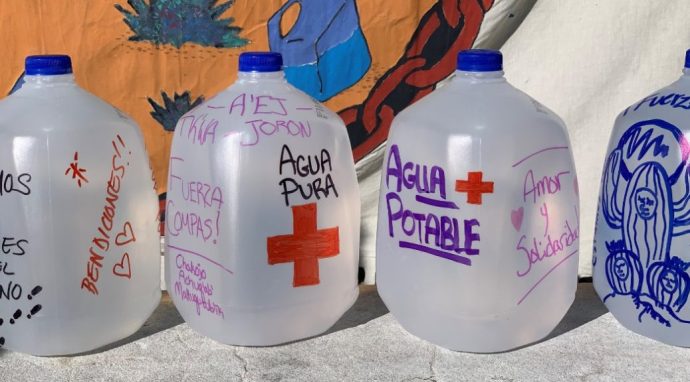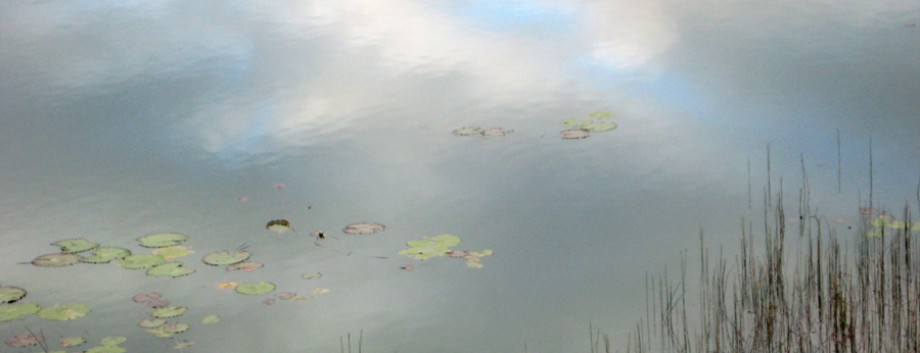There are two questions Krista Tippett of On Being consistently asks people she interviews. She starts out with what was your religious upbringing? The answer to that may or may not be relevant in the present, although the effect lingers in some way—great or small. Somewhere along the way she does the deep dive with what does it mean to be human? Even though people are usually expecting this question, given Krista’s long history of asking it, there’s a pause…because the answer is defining. There are two additional questions that aren’t usually spoken but are inferred: How do we want to live? Who will we be to each other? From these, the beliefs, interests and actions of the individual naturally unfold to state who they are in the world. It has to do with Identity. It’s important.
I’m not religious but do identify as spiritual. My beliefs are firmly grounded in human potential, the humanitarian and respect for the planet. With that, the questions mentioned previously—setting aside the one on religion—are engrained within my consciousness. Sometimes I think it would be easier if they weren’t, if I could turn my back. But I can’t, even as exhausting as it’s become in the last few years. The questions are swirling around all of us, coming from every direction, calling continually for us to define Who We Are.
Aside from the many environmental issues, immigration is at the forefront for me, having written of it before in regard to Francisco Cantú’s book The Line Becomes a River. I hold great respect for the many who are acting with decency, some with great sacrifice, to do what they can, seeing those in need as people—not chips in a political game.
In October, the Prescott United Methodist Church and others in the local interfaith community, League of Women Voters, Prescott Indivisible and Prescott Peacebuilders sponsored an immigration panel. I went because I really wanted to know how the question was being answered locally. Representation on the panel was wide-ranging, covering a lot of ground. Of the invitations extended, we learned that only the Prescott Police Department declined to send a representative as panel member.
These are the key points offered from those on the panel.
Saul Fein is a Holocaust survivor. Born in Romania, he emigrated to Argentina in early WWII, finally coming to the US to become a citizen after the mandatory five-year wait period. He made these important statements.
Emigration spells persecution. People don’t leave their homes unless they’re threatened significantly.
A member of the local immigrant community, who had come from Mexico 25 years ago, spoke of life as an immigrant seeking citizenship in the US. The tears she could not hold back, her shaking body, communicated more than words ever could.
Dan Streeter, Superintendent of the Humboldt Unified School District, the largest in Yavapai County, cited the 14th Amendment, Civil Rights, Family Rights and Privacy Acts related to protection, and that schools are prohibited from denying students access based on immigration status. He was reassuring in that he said, This is not a political issue for schools. This is a child issue for schools. That was a relief, but then he also stated concerns about children coming to school hungry, or not at all, as families avoid available assistance out of fear—a valid one [my comment].

Photo credit: Doug Iverson.
Laura Rambikur is an adjunct professor at Boston University’s School of Theology teaching graduate level courses on immigration and theology. She also works as a clinical therapist, serving survivors of torture, for the International Rescue Committee in Phoenix. She spoke of history and what makes it important today.
Family separation links all the way back to the transatlantic slave trade. What we’re experiencing today is baked into how this country really came to be. Immigration in this country is always been linked along racial lines, as well as economic empowerment for very specific groups of people in positions of power.
We can’t begin to have a conversation on immigration until we recognize the history we participate in. The theological concept of Manifest Destiny is taught in our schools: the right to take advantage of, to conquer and to expand.
This led westward expansion and cultural development specifically in the Southwest. This is important when thinking of boundaries and borders, especially when considering tribal communities that have been here more than 3000 years. Until the 1930s, tribal membership numbers were kept in the Arizona Game and Wildlife [designation]. Until 1970s, Native Americans had to pass a literacy test to have the right to vote. Immigration has always been about who is counted and who is not, always along racial lines.
Today politicians use theology [quoting scripture out of context] in a very public way that affirms children being ripped from the arms of their parents.
How do we participate in these policies whether we are aware of them or not?
Ella Rawls, daughter of an immigrant, is an immigration attorney working with low income immigrants in southern Arizona. Ella went through the types of visas and application process. For some, it may take 12 years.
Now in San Diego and El Paso, when they present at the border, they are no longer allowed into the US. They get a court date and are forced to go back to Mexico to wait. Courts are secretive and do not allow legal observers to view what’s going on. The level of success is very low unless they have access to immigration lawyers, who are often hard to reach and, if not working for a nonprofit, very expensive.
Sue Lefebvre is the author of No More Deaths and representative of the humanitarian organization by the same name based in southern Arizona. Their mission is: to end death and suffering in the Mexico–US borderlands through civil initiative: people of conscience working openly and in community to uphold fundamental human rights. More information on their website. They have especially been in the news over the last few years for search and rescue efforts in the desert, and providing aid by leaving water, food and blankets on migrant trails. Volunteers have been arrested while carrying out their duties according to their charter. Dr. Scott Warren was put on trial in federal court for harboring undocumented migrants, a felony, which ended in a hung jury. Some of the charges were dropped. But, as I’m writing this, he has entered retrial in Tucson and faces 10 years in prison if convicted. You can follow a daily log of the trial here.
Sue spoke about the impact on those living along the border, and hardships and deaths of migrants.
In 1994 NAFTA between the US, Canada and Mexico came into being and destroyed the cotton market in Mexico. Farmers began to move north. In addition, in 1994, they tightened measures at border entry. Many more began attempting to cross through the desert. Before 1994, there were a few deaths in the desert. In 2000 there were 1,600,000 arrests and 260 people died in the Arizona desert [and it’s kept climbing].

Photo credit: No More Deaths.
Elea Ziegelbaum is a graduate of Prescott College and community organizer from northern Arizona who has focused on migrant and climate justice since high school. She spent several months on a research project collecting data on immigration enforcement in Yavapai County. In her talk she especially focused on the 287(g) program, an agreement between ICE and the Yavapai Sheriff Department. Few in the audience knew what she was talking about.
That’s because it’s secretive. It authorizes local law enforcement to conduct immigration enforcement, the highest level of collaboration possible, with ICE.
This is a completely voluntary agreement.
The main emphasis is to elevate detentions and deportations in members of the immigrant and undocumented community in any given area by creating a tight web that increases people’s chances of being arrested and deported.
Yavapai County has had the 287(g) agreement since 2008. The impact is hard to determine because the records are kept under wraps. They are not open to sharing arrest and deportation data. So, this is a conservative number. Since 2008, 1812 arrests can be confirmed. Again, a conservative number. Considering how small our communities are, even this is a sizeable impact that has torn families apart.
Diane Iverson, children’s book author and illustrator, opened the panel with a prayer she’d written. By the time she’d said the last words, tears were slipping down my cheeks…because, as a collective, we’ve fallen so short of the ideals she mentioned, and so many have closed their hearts.
Prayer for the Immigrant
Oh God, whose name is love, we have a statue on our shore. She lifts her flame heavenward in a way that makes us proud to be American. Please make us worthy of her lofty ideals. Give us hearts willing to share the blessings of this country.
Welcome into your peace the father and his child, face down on the river’s edge, who longed for the life we sometimes take for granted. Give us the will to free the little ones from their cages and into the arms of their loved ones.
Be present with all those who work to create and enforce laws, that our nation may be both just and compassionate. Open our hearts that we may remember our own immigration story. For we were strangers in the land of Egypt, and yet here we are, in the comfort and safety of this room and this country by your abundant grace. Amen.
So, we are left with the questions mentioned in the beginning whose answers provide a platform to live by…
What does it mean to be human? How do we want to live? Who will we be to each other?
